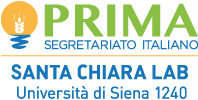On 22 December 2014, through an Article 185 initiative under Horizon 2020, nine Member States of the European Union (EU) – Croatia, Cyprus, France, Greece, Italy, Malta, Portugal, Slovenia and Spain – submitted a proposal for the participation of the EU in a joint research and innovation programme, focused on the development and application of innovative solutions for food systems and water resources in the Mediterranean area.
The proposal has been named “PRIMA”, which stands for “Partnership for Research and Innovation in the Mediterranean Area”. According to it, the PRIMA general objective is to reinforce cooperation in Research and Innovation among the Mediterranean countries, turning to the adoption of much-needed solutions aimed at contributing to the challenges of sustainable food production and water provision in the Mediterranean basin. The submission of the PRIMA proposal followed the adoption of the Competitiveness Council’s conclusions of 5 December 2014.
PRIMA currently counts on a partnership of 19 participating countries: Algeria, Croatia, Cyprus, Egypt, France, Germany, Greece, Israel, Italy, Jordan, Lebanon, Luxembourg, Malta, Morocco, Portugal, Slovenia, Spain, Tunisia and Turkey. As the initiative is evolving over time, more participants, from both EU and non-EU countries, are expected to follow. The partnership will be financed through a combination of funding from participating countries (currently €269 million), and a €220 million contribution from the EU through Horizon 2020, its research and innovation funding programme (2014 – 2020).
The Impact Assessment process
In line with the indications provided in the Better Regulation Guidelines, and with the support of an external group of experts, the European Commission services are now performing an Impact Assessment of the PRIMA initiative. The purpose of this process is to analyse the need for an EU action in this domain and the potential economic, social and environmental impacts of the alternative policy options.
The Stakeholder Consultation process
The European Commission’s Better Regulation Guidelines have strengthened the commitment to carry out consultations that are of a high quality, transparent, and reach all stakeholders.
In the context of the PRIMA Impact Assessment, the stakeholder consultation process will include at least the following two consultation activities:
a 12-week online public consultation, running from 1 February to 24 April 2016
a stakeholder event which took place in Malta on 17 March 2016
- PRIMA IA Stakeholder Event – Short Summary Report 999 KB
- ANNEX I 1.8 MB | ANNEX II 2.3 MB ANNEX III 3.5 MB | ANNEX IV 3.6 MB
- Final Agenda 307 KB
Given the scope of the PRIMA initiative, consultation activities will target a wide range of stakeholders. Among the others: research organisations and associations of research organisations; universities and associations of universities; public authorities (including regional/local administrations); local communities; farmer associations; large businesses; SMEs; business associations; inter-governmental organisations; and NGOs.
The main objectives of these consultation activities are:
- to collect data and information on the state-of-the-art of research and innovation in the field of water and food systems in the Mediterranean area
- to collect input on the problem definition and on the scope of a potential EU intervention
- to collect feedback on the different options for future research and innovation in the field of water and food systems in the Mediterranean area (including their impact)
Regular updates on the development and outcome of these consultation activities will be uploaded in this webpage.

